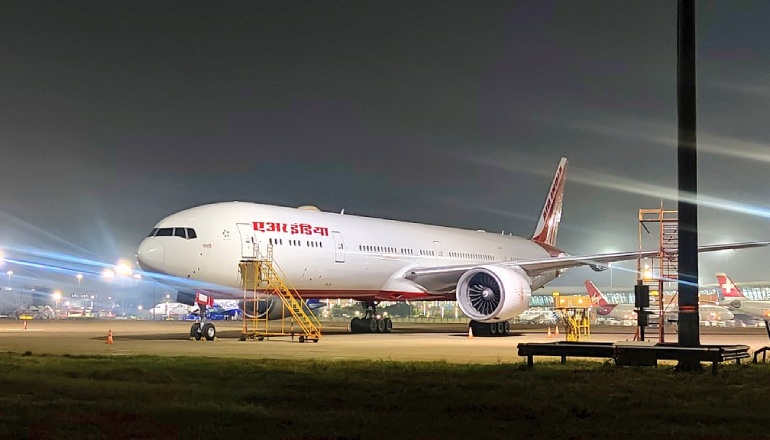Air India is upgrading its sustainability initiatives.
The Tata-owned airline has adopted aero wash to wash and clean the exteriors of the aircraft. Aerowash comprises a robotic micro-fibre brush drum for cleaning. The technology will support the airlines’ sustainability initiatives and also enhance operational efficiency.
Through aero wash, the airline can save up to 75,000 liters of aircraft per year, and for narrow-body aircraft, the savings can range up to 30,000 liters.
Automated cleaning is a sustainable and efficient method that reduces aerodynamic drag reduces weight. It improves fuel efficiency, prevents structural damage, extends the aircraft’s lifespan, and enhances its appearance.
“The adoption of this modern cleaning system underscores our commitment to efficiency, sustainability, and cutting-edge advancements aligned with industry best practices. The device ensures improved aircraft maintenance and aligns with the Tata group’s pledge to conduct business in more sustainable ways,” said SK Dash, Chief Technical Officer at Air India.
It must be noted that Air India has committed to the International Air Transport Association’s Fly Net Zero initiative to operate with net-zero carbon emissions by 2050.

